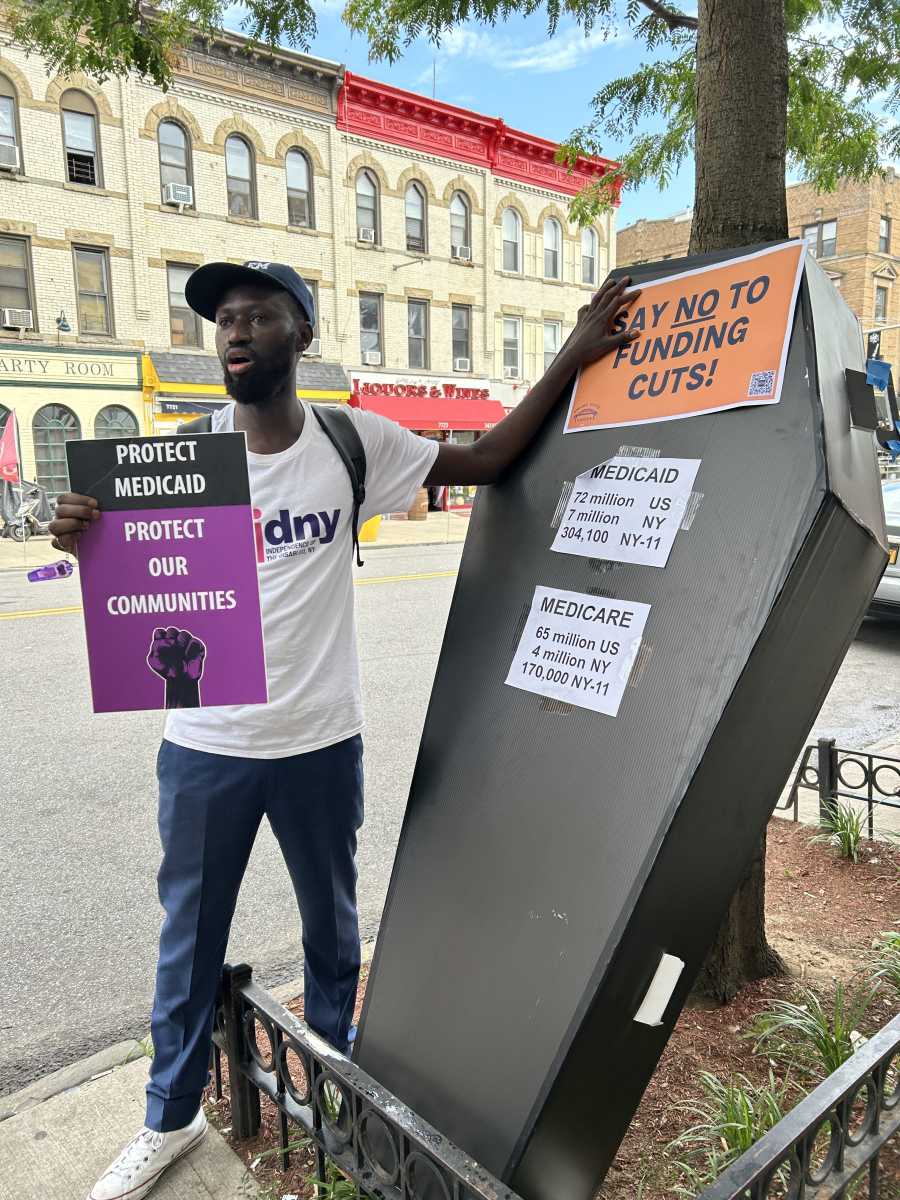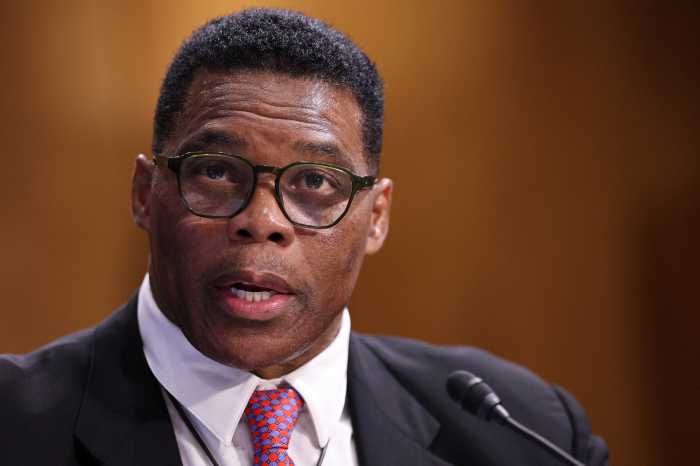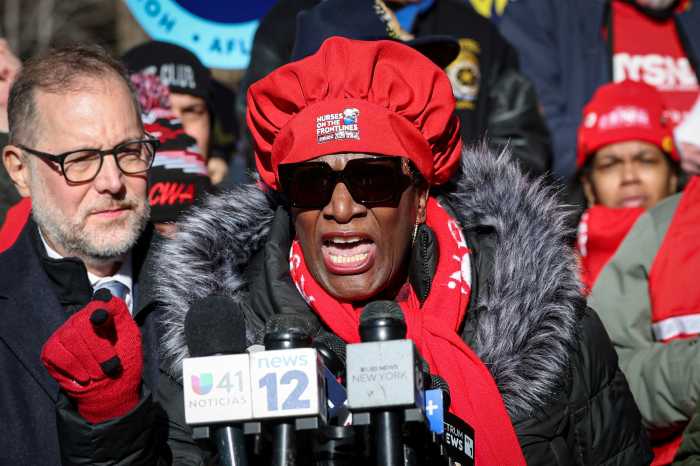On Aug. 13, the Center for the Independence of the Disabled, New York (CIDNY), in a hybrid meeting hosted at its Staten Island office, discussed the impact of the proposed cuts to Medicaid and the Affordable Care Act (ACA) due to the passage of the One Big Beautiful Bill Act on July 4, for the disability community.
Attendees, who want to remain anonymous, included disability advocates and people from community organizations.
One attendee began by sharing a presentation, which explained the economic impact of the cuts, referencing data from the Leonard Davis Institute for Health economics at Penn State University (Penn LDI) and the Yale University School of Public Health (Yale SPH).
The national impact of the cuts, if they take effect, would include the loss of medical coverage for an estimated 15 million people over the next decade, and a projected 42,500 deaths annually. Also, 22 million people would experience premium increases for their coverage, with increased out-of-pocket costs for those who lose their own, according to Penn LDI and Yale SPH data.
Locally, if they take effect, “It means that 1.5 million New Yorkers will become uninsured. This would lead to a loss of $13 billion in funding for the statewide budget, which would include a loss of $8 billion for hospitals, as well as the loss of 34,000 hospital jobs and 29,000 jobs in the healthcare field,” data from the Community Service Society states, as referenced in the presentation.
Then, disability advocates and members of community organizations in NYC were allowed to share their thoughts on how the cuts will impact their lives if they take effect.
One advocate shared that her medication is necessary for her disabilities, and she relies on Social Security income. Sharing her concerns, she said, “If it’s this difficult to get Social Security services, after being denied twice under these circumstances, think about how much harder it’s going to be once these changes are implemented,” she said.
Many in the disability community, including this person, are very scared to lose Medicaid coverage for various reasons including these.
She added, “I am sick and tired of hearing, ‘President Trump wants to cut Medicaid.’ I feel like all I’m doing is hearing, hearing, hearing, and none of our elected officials are taking action. How about we have our elected officials do less speaking and more action?”
Another attendee discussed how, in her work, the people she speaks with daily have an unclear understanding of the Medicaid system, and why the budget matters.
“Most of the Medicaid, etc. system revolves around money, and I know we know that, but we don’t really know that. So, it’s not necessarily that they don’t care about you, but it’s about a) that there’s no money, and b) that they don’t want to spend the money on caring for people. The issue that really needs to be addressed is not, ‘Why don’t they care about me?’, it’s ‘Let’s talk about the budget and what is more important in the budget, to be [used for] funding?’”
Another attendee, who works at CIDNY, emphasized to the disability community that they don’t have to be scared to share their stories and experiences with him, since he can help with spreading awareness on their concerns.
Those who have general inquiries can find contact information for CIDNY in the five boroughs here, and they can reach out to the organization for general inquiries via email at info@cidny.org,























